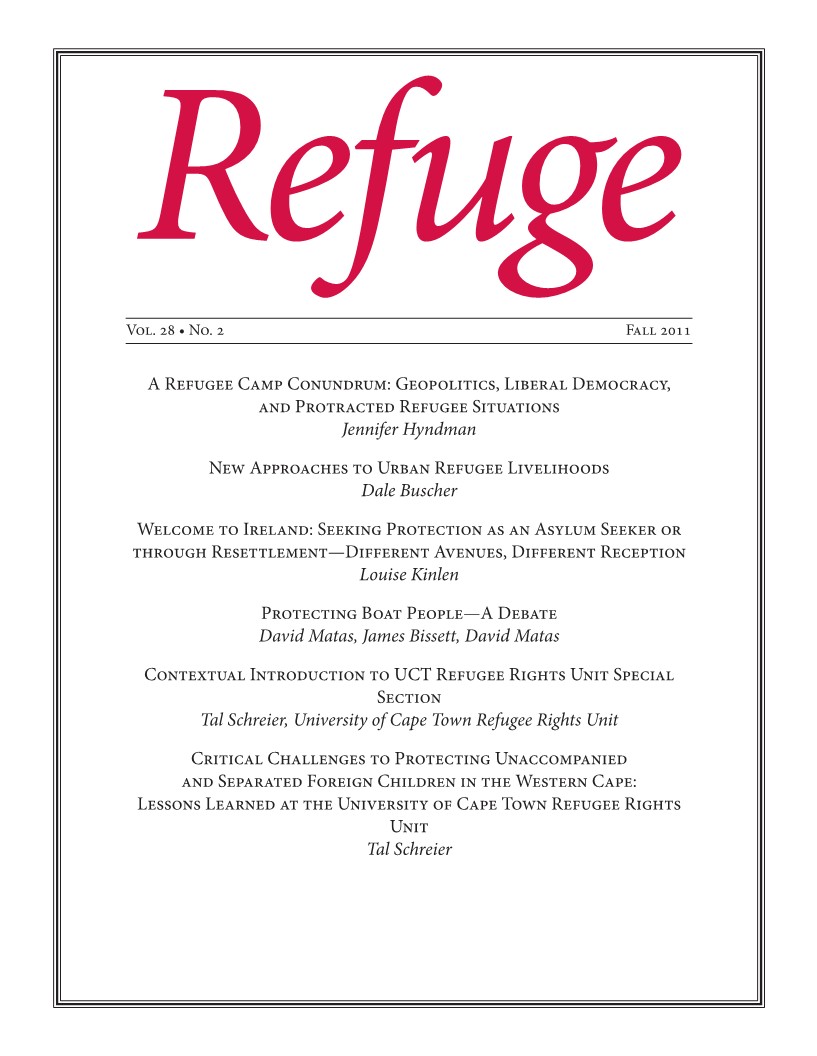New Approaches to Urban Refugee Livelihoods
DOI:
https://doi.org/10.25071/1920-7336.36473Keywords:
urban refugees, right to work, economic opportunities, livelihoods, economic coping strategies, self-relianceAbstract
Increasingly refugees live in urban areas—usually in slums impacted by unemployment, poverty, overcrowding and inadequate infrastructure. Host governments often restrict refugees’ access to the labor market, access that can be further impeded by language barriers, arbitrary fees, and discrimination. UNHCR and its partners are seldom equipped to understand and navigate the complex urban economic environment in order to create opportunities for refugees in these settings. Based on assessments undertaken in 2010 and 2011 in Kampala, New Delhi and Johannesburg, research findings indicate that refugees in urban areas adopt a variety of economic coping strategies, many of which place them at risk, and that new approaches and different partnerships are needed for the design and implementation of economic programs. This paper presents findings from the assessments and lays out strategies to address the challenges confronting urban refugees’ ability to enter and compete in the labor market.
Metrics
Downloads
Published
How to Cite
Issue
Section
License
Copyright (c) 2013 Dale Buscher

This work is licensed under a Creative Commons Attribution-NonCommercial 4.0 International License.
Refuge authors retain the copyright over their work, and license it to the general public under the Creative Commons Attribution-Non Commercial License International (CC BY-NC 4.0). This license allows for non-commercial use, reproduction and adaption of the material in any medium or format, with proper attribution. For general information on Creative Commons licences, visit the Creative Commons site. For the CC BY-NC 4.0 license, review the human readable summary.







